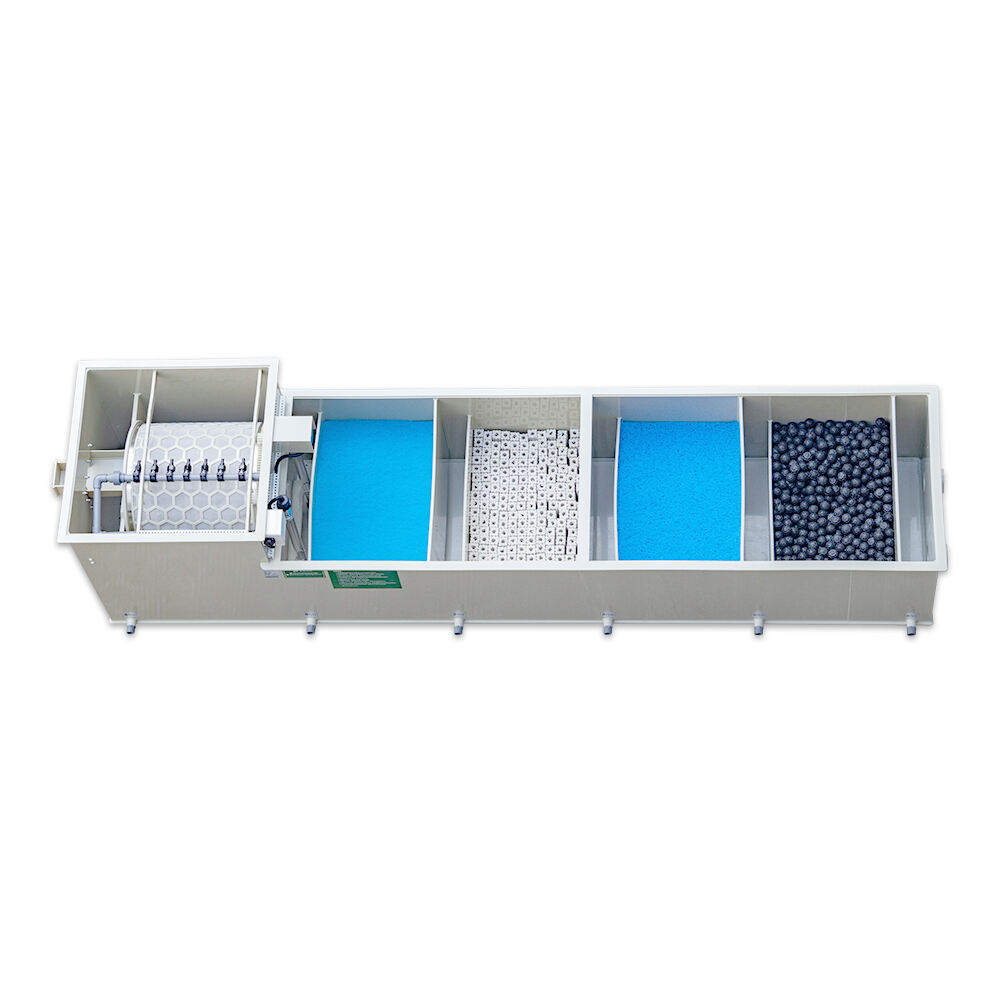fish pond filter system
A fish pond filter system is an essential component that maintains water quality and ensures a healthy aquatic environment. This sophisticated system combines mechanical and biological filtration processes to remove debris, harmful chemicals, and maintain optimal water conditions. The mechanical filtration component captures physical waste, including fish waste, fallen leaves, and uneaten food, through various filter media such as foam pads or filter brushes. The biological filtration element houses beneficial bacteria that break down harmful ammonia and nitrites into less toxic compounds. Modern fish pond filters often incorporate UV sterilization technology, which helps eliminate harmful algae and pathogens. The system typically includes a pump that circulates water through different filtration chambers, ensuring thorough cleaning before returning clean water to the pond. Advanced models feature adjustable flow rates, easy-maintenance designs, and energy-efficient operation. These systems are scalable to accommodate ponds of various sizes, from small garden features to large commercial installations, making them versatile for different applications. The integration of smart technology in newer models allows for automated monitoring and adjustment of filtration parameters, ensuring consistent water quality with minimal manual intervention.


